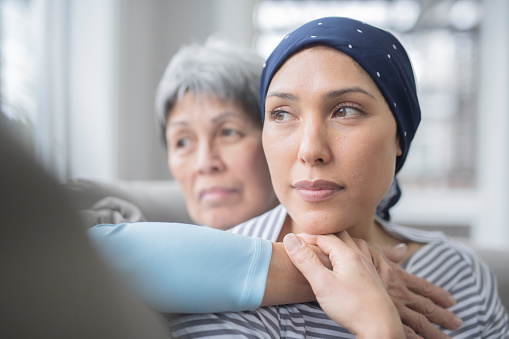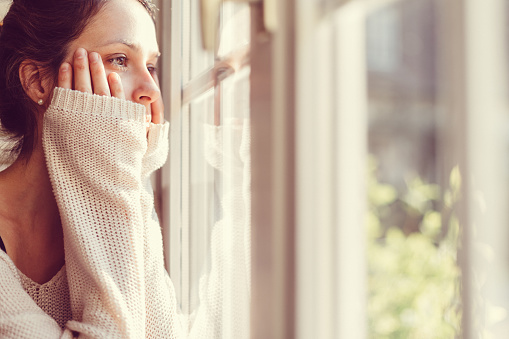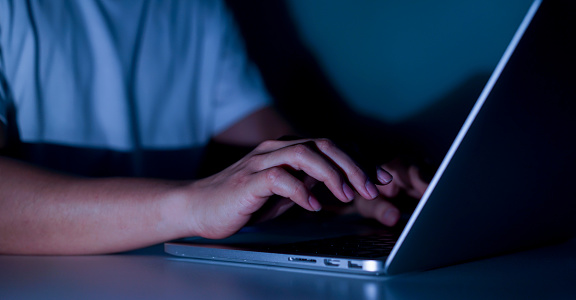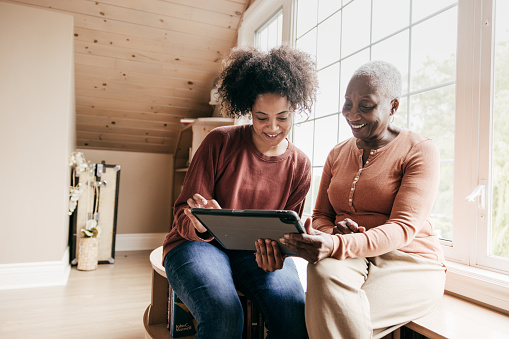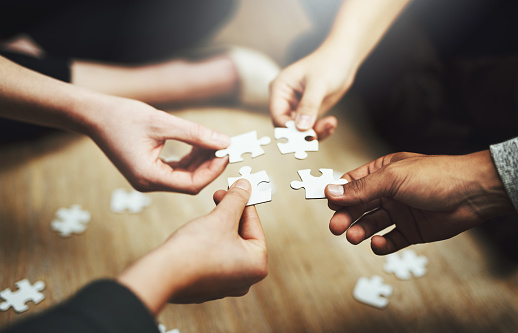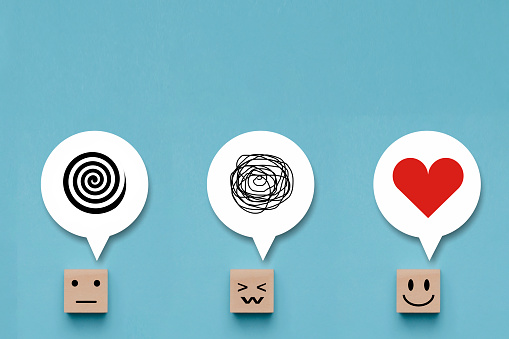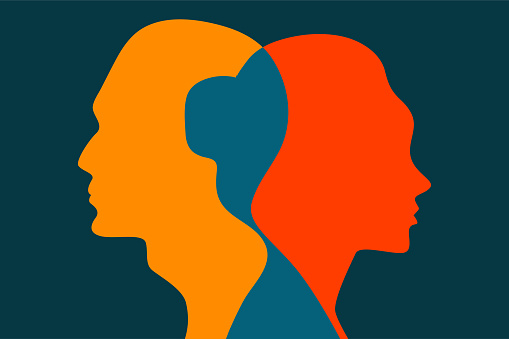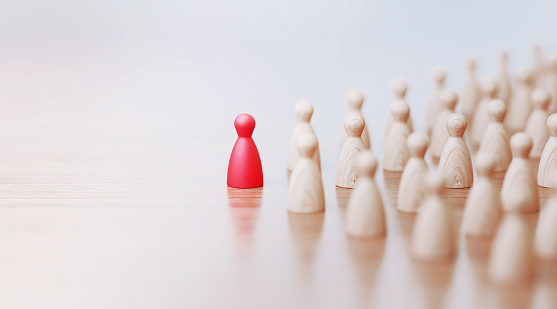Two years ago, the world we live in was shaken to a degree that millions of us had never seen in our lifetime. When COVID-19 started to be spoken about on the news, most of us thought this was an isolated event happening only in a particular area of the world. We all either watched the news or read about it; however, the majority of us possibly reacted the way we do when we are watching or reading a story about a dramatic event that takes place in a far distant country. We feel empathy, maybe trying to put ourselves in those people’s shoes, and five minutes later, our heads are sunk back into our daily routines, and we end up forgetting about it. Little did we all know that this particular event was going to impact the whole world to the extent that it did.
In a strange way, if we take a minute to think about it, this pandemic brought us closer in the sense that the whole world went through it at the same time. Countries limited entrance and borders were being closed because of the pandemic. We were just all human beings told to stay home until it was safe. Every single news coverage site spread the same message: no socialising, no touching, and keep your distance. We all began to believe that we were all threats to one another and if we cared about our friends, family, and neighbours that we needed to stay apart for our own safety and the safety of others.
As much as this brought us closer in terms of experience, it simultaneously drove us more apart than ever.
Our lives changed dramatically. We all went remote, living our lives 100 percent at home. We did not interact with people, apart from the ones in the household (if you had any). We did not do most of the things that were a part of our routine: going out for dinner, having a drink with a friend, or going to the gym. Our whole way of life was suddenly taken from us. The promise was that this would all be a temporary sacrifice and that life would go back to normal was what kept us going. What started off being a two-week thing to flatten the curve led to two years of being isolated from friends, co-workers, and family.
This ended up creating a deep-rooted fear of being close to anyone. The pandemic brought to life a new normal that none of us really knew. Some of us were able to accept this new reality easier than others. Whether you are an introvert or extrovert, everyone struggles with having to be socially distant. Life is now somewhat back to normal but with nuances that are heavily being propelled to a new kind of society when it comes to social interaction.
Nowadays, most organisations are offering different working arrangements to their employees: working hybrid, becoming fully remote, or simply going back to the office like before. We can all agree that having options is great. We are living in an era where most people can choose what kind of life they want to live, and that is a great thing. However, it is also creating a bigger distance between people. Many of us now have a choice, and often that choice falls into the option that keeps us in our comfort zone. The impact of being socially distant greatly affected our perception of what being safe means, and that has led to many of us not feeling safe going back to our old routines. We would rather embrace a new lifestyle because it feels safer to keep our distance and not engage with others. Even though some may be under the impression that none of it should be a concern anymore since life is back to ‘normal’, the truth is, in many cases, that these feelings persist.
Allowing people to have options can bring a sense of having more control in their lives and increase their work-life balance. Nevertheless, regardless of the working arrangements you choose, if you stop and reflect on how much society has changed and is changing, you simply cannot refuse to acknowledge how much of a colossal impact all of this has had and is still having on our sense of connection with others. It is certain that everyone has had their own experience during these challenging times, but one thing is unquestionable: we all at some point felt tired, frustrated, stuck, and anxious. Although some of those emotions were linked to the fear of the unknown, a big part of it was the lack of social connectedness.
Remember, for two years we were told to stay six feet apart from one another and that being close was life-threatening. That was imprinted in our minds and arouses a deep sense of uneasiness. Some may call this an irrational fear, but it is one that ends up crawling back every time we find ourselves around other people, in particular people who we are not close with. As human beings, when we experience low levels of social connection, this can be associated with major declines in physical and psychological health as well as a higher likelihood of antisocial behaviours that tends to lead to further isolation. Feeling lonely can have a negative impact on your mental health, in particular, when these feelings have lasted a long time. According to research, isolation is often associated with a heightened risk of developing depression, anxiety, low self-esteem, sleep problems, and increased stress (Seppala, 2014).
When you connect with others, you nurture your emotional and physical wellbeing. Having trustworthy relationships and feeling connected to people in your life uplifts your potential to cope with challenges. Individuals who feel a sense of connection to others are less likely to develop depression and anxiety symptoms (Better Health Channel, 2022). In addition, studies also proclaim that having dependable relationships enhances self-esteem; they lead to us being more empathic, trusting, and cooperative with others, and, in turn, others reciprocate (Seabrook, Kern, & Richard, 2016).
Our day-to-day lives have always been busy. This has not changed, not even with the pandemic. We were busy before, and we definitely still are. We spend our days trying to balance different responsibilities, endless meetings, school activities, and so on. On top of this, we try to squeeze in time for exercise and spending quality time with close family. The bottom line is that we are always on the go. When can we find the time to connect with others?
Human connections are very important, maybe more now than ever before. Yes, the world is no longer the same as it was. Virtual interactions are way more common now than physical interactions. However, it seems that we are being complacent in becoming avatars living in the metaverse. Technology is definitely a good thing that has brought amazing commodities and different ways to connect with people (especially when we are apart). Even so, we cannot forget that we are social beings wired to connect. We feed on it; we strive on it. We need human connection to feel that we are a part of something bigger than ourselves.
With this said, have you asked yourself how many times you actually looked and smiled at someone? Now that masks are no longer mandatory, we should try to go back to some of the key behaviours that allow us to grow human connections.
These are strategies that you can put into practice to build connections with others:
- Volunteering—this can be a great way to build connections. Try giving your time at a non-profit organisation near you, for example.
- Surround yourself with people with shared interests—think about things you enjoy doing (reading, hiking, playing chess, yoga, etc.), and try to find a local group that meets regularly for those exact activities.
- Starting, or simply going back to, this kind of routine interaction is of utmost importance and, not to mention, it is a lovely way to get comfortable being around people again and build connections.
- Support groups—this may also be a useful first step toward connectedness. Knowing that we aren’t alone and that others also have trouble cultivating relationships can enhance your outlook on establishing connections. Remember that support groups are a great way to learn coping strategies and gather suggestions about different ways to connect with others.
- Improve your communication skills—every time you find yourself engaging in a conversation, make an effort to be present and listen to what the other person has to say. The more you show interest, the more genuine you come across. Ask questions. Show them you are listening and that you care.
- Don’t hide away in your phone—we all know how easy it is to just turn to your phone whenever you are feeling uncomfortable in a social interaction. However, this can inhibit your ability to be social. When you are out and about, focus on being present; tune in to social cues. Take a chance to engage with others. You will find a lot about not only yourself but others too.
Important note: If joining a group or randomly starting a chat with someone you don’t know gives you severe anxiety, consider reaching out to a mental health professional, as they can work with you on developing strategies that may help you manage your emotional responses to some of the triggering thoughts and/or circumstances.
Bear in mind that not everyone needs to connect socially in the same way. If you’re more of an introvert, hanging out with a group of people may not be what works for you. Try to find a way to connect that matches your personality and distinctive lifestyle. We are built differently, and that is the magic of being human. We just need to find what works for us. It’s never too late to engage in human connection. The benefits are great and can have a long-lasting impact on your mood and prevent more serious mental health concerns (MHA, 2022).
























